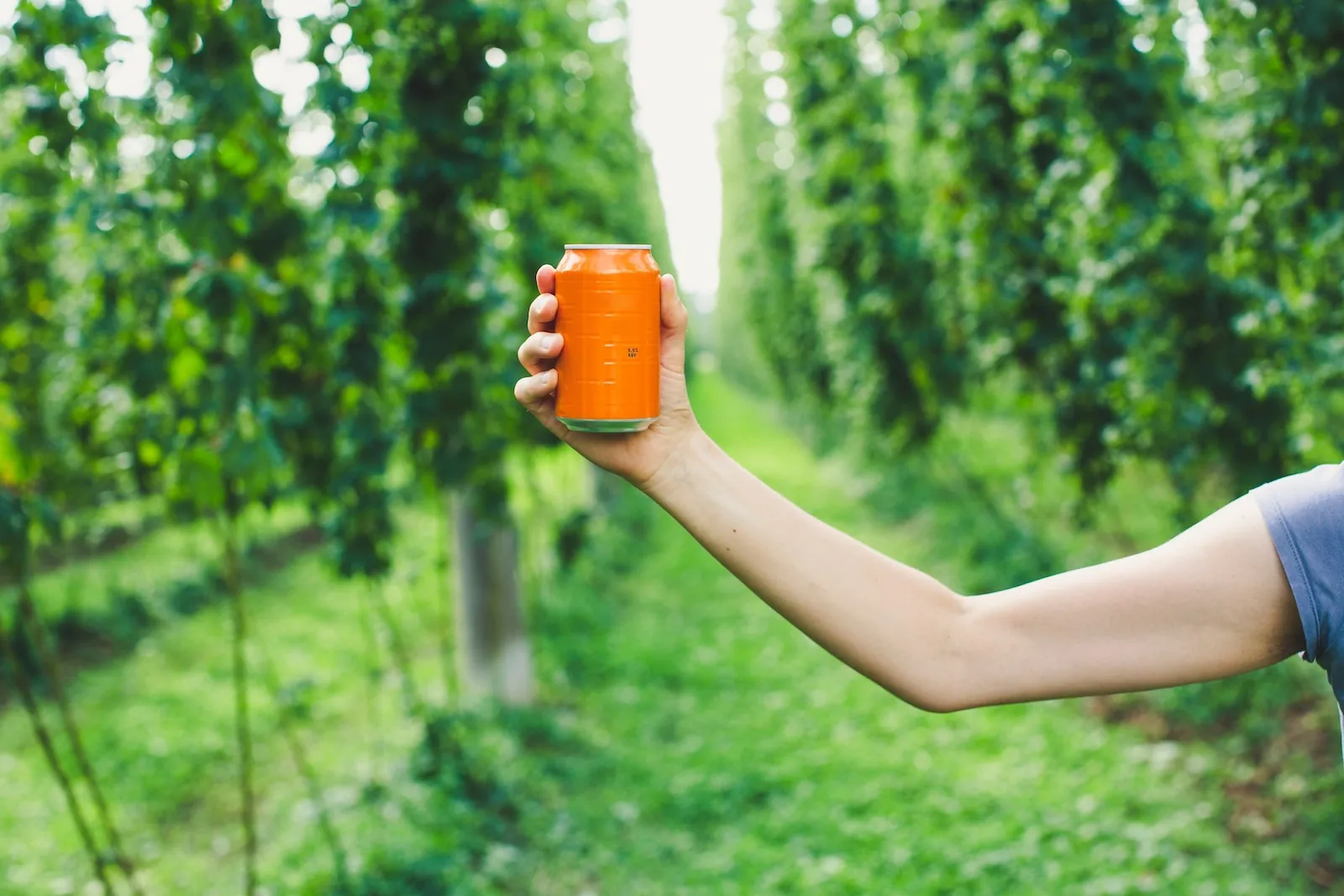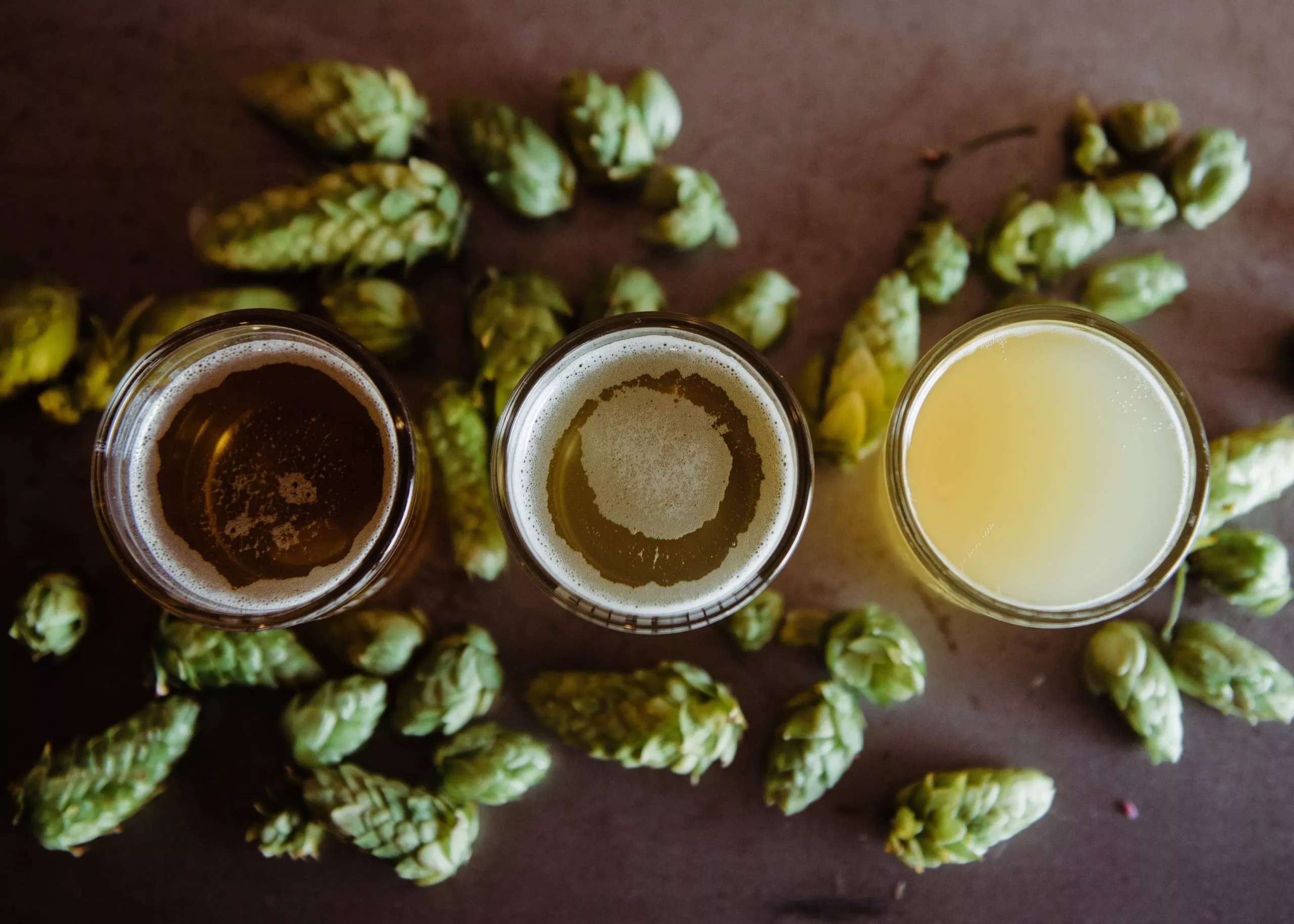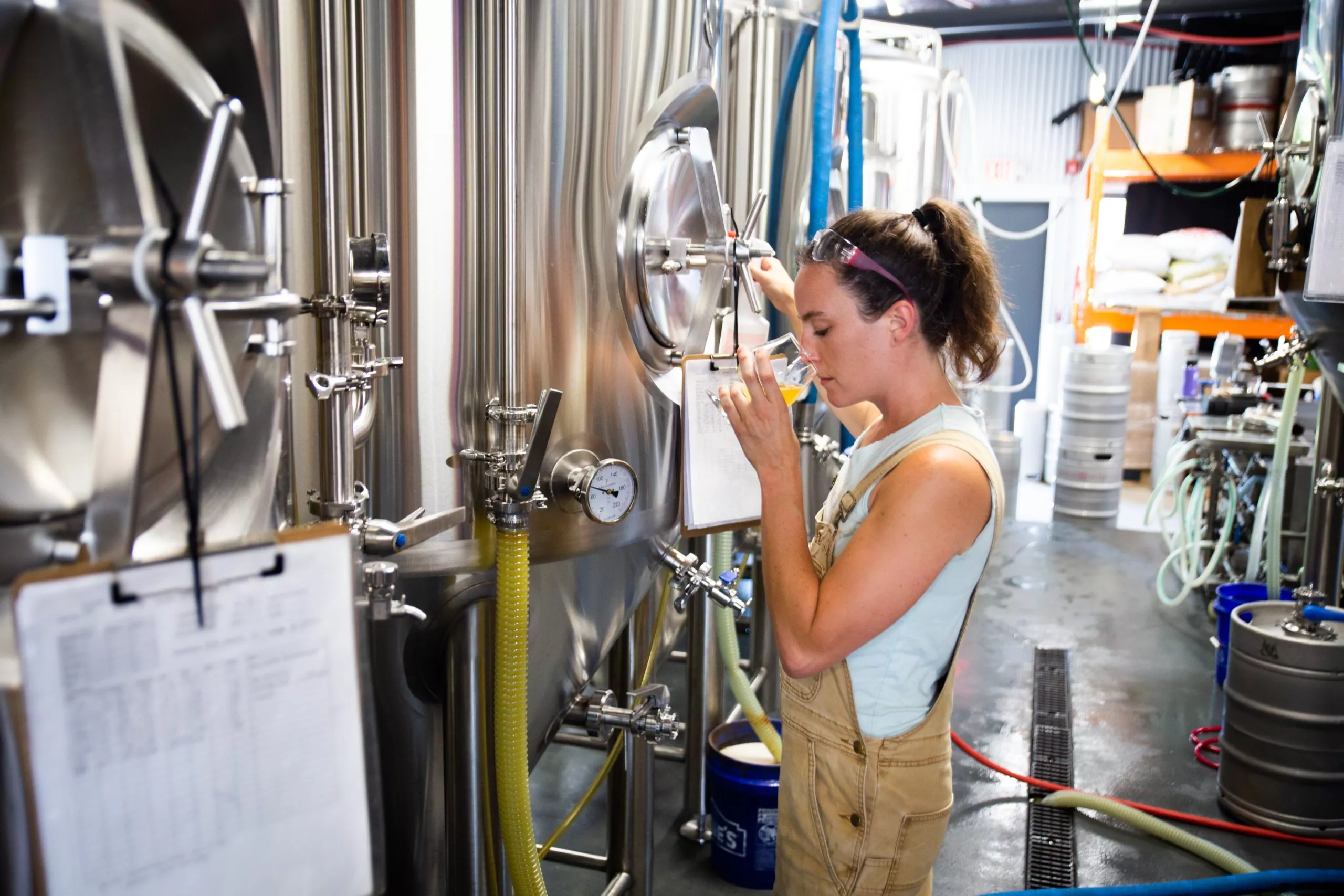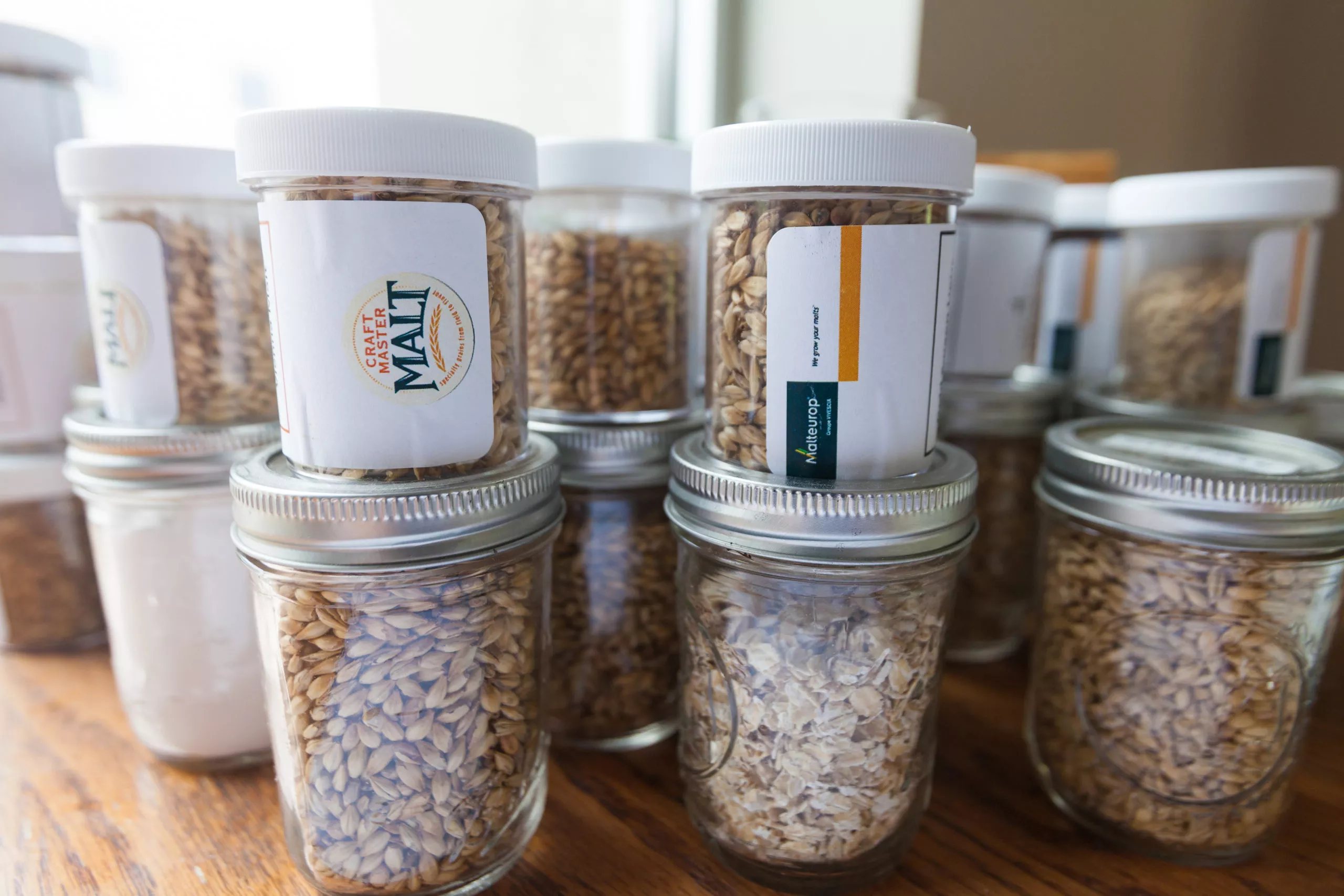There’s no denying that sustainability is the key to a better future for our world, but how important is that notion when it comes to sitting down and enjoying a cold beer? For many, it’s crucial. In fact, a 2018 study published by Indiana University revealed that a majority of beer consumers were willing to pay more out of pocket for a sustainably crafted beer. But producing that eco-friendly beer — that’s easier said than done.
After all, the beer industry isn’t commonly associated with the concept of sustainability – the very nature of the brewing process is inherently wasteful. Whether it’s the production and transportation of raw materials for both the beer and its packaging, the amount of waste resulting from the brewing and production processes, or the required resources needed to develop a distribution framework, there are a variety of core environmental concerns deeply woven into the beer industry.

Massive domestic breweries such as Anheuser-Busch have been able to move towards wind-powered energy solutions, with a goal to utilize only renewable energy sources when producing Budweiser by 2025. But such an incredible eco-shift isn’t always attainable for breweries of smaller sizes, particularly those with less financial resources and capital at their disposal.
Yet there are still a variety of other sustainability initiatives ready to explore, particularly for smaller brew operations who aren’t ready to implement such enormous measures right away. Even the smallest of steps can have a serious impact on the level of sustainability found throughout the entire beer industry.
Here are a few important steps to help breweries move towards a sustainable brewery model over time.
Assess Your Current Brewing & Production Processes
First, it’s important to look at your current production process and assess any areas that could be more sustainable with the right alternatives. The brewing process itself is long and often wasteful, not to mention what happens when the beer moves into production, packaging, and distribution channels.
One of the biggest environmental concerns around breweries is excessive freshwater usage. Any craft beer connoisseur will tell you that water plays an important role in brewing beer, making up about 95% of the composition of single beer. According to the Brewers Association, it can take anywhere from three to seven barrels of water to make a single barrel of beer.
But that doesn’t even begin to account for all of the wastewater and organic waste that also comes about as a result of the brewing process. Take stock of the amount of water you’re using during the heating and cooling processes (particularly if you’re not using a closed-loop system) and the resulting wastewater to see if there are areas of excessive waste to note.
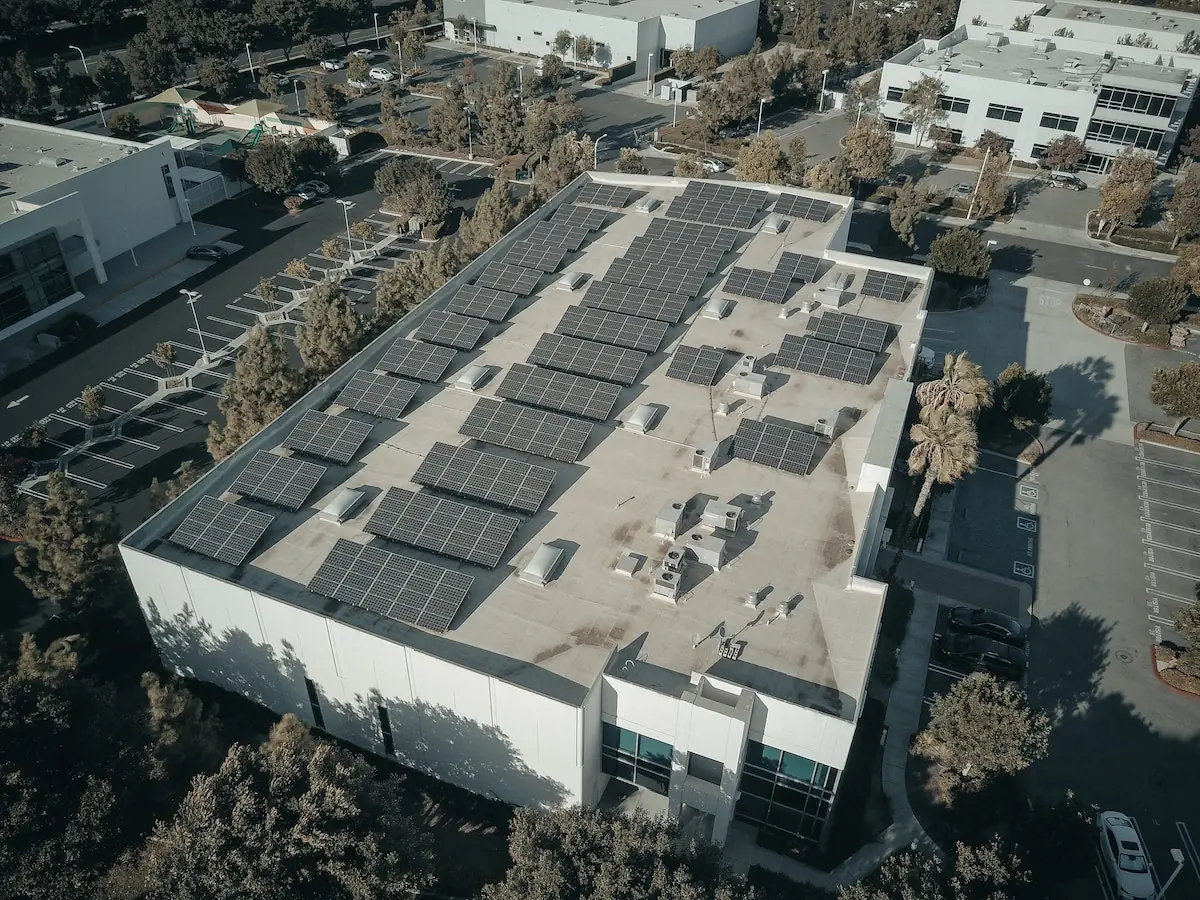
Similarly, it’s important to understand your brewery’s energy usage and consequential CO2 production levels. The Brewers Association published a study that found breweries use an average of 50 to 66 kilowatt-hours per barrel of beer — meaning they can burn through a household’s average energy usage in just 158 to 208 barrels of beer! And that’s only for the production process — this issue is exacerbated when beer moves into distribution.
Do your ingredients come transported from a great distance? Are you using recyclable or non-recyclable packaging in the canning or bottling process? And are these beers then being distributed outside of your brewing facility? Each of these questions will uncover new environmental challenges your business must face.
Set Realistic Goals & Create a Plan of Action
Once you’ve assessed your existing processes, it’s time to set some metrics and consider what goals will help move your brewery in the right direction. It’s crucial that these goals be realistic and achievable, perhaps even broken up into stages over a period of time. Set these goals as key performance indicators (KPIs) for your business to ensure environmental accountability. Ideally, a member of your business’s leadership team would spearhead these initiatives.
Not sure where to start when it comes to setting some attainable KPIs for your brewery? The Brewers Association has created a Sustainability Benchmarking Tool that helps brewers track and decrease their use of natural resources.
Start with any easy, low-hanging fruit. For example, ask yourself the following questions:
- Is there a way to minimize the distance key ingredients must travel for our beer?
- Could we conduct the brewing process more efficiently to reduce our overall energy usage?
- How can we address our output of waste, particularly wastewater?
- Can we swap any of our current packaging with more sustainable options?
- Is there a level of renewable energy we can utilize in any of our processes?
- How can we repurpose any of the waste we produce, such as carbon dioxide or leftover barley grains?
Even taking the smallest of steps to minimize your brewery’s energy usage will add up over time – plus, it’s a great way to start identifying potential areas of improvement and building upon them!
Build on Your Brewery’s Sustainability Accomplishments
As you begin to successfully implement these sustainable measures, you can set even higher goals to work toward. If you’re ready to take your brewery’s sustainability practices to a whole new level, consider making physical changes to your space that will help the environment.
For example, Tonewood Brewing recently opened their newest facility in Barrington, NJ, which features state-of-the-art green technology for sustainable production. By leveraging a 230-kilowatt rooftop solar array to power their entire facility and using carbon dioxide recapture technology, their team is able to reduce their carbon footprint significantly and mitigate the overall environmental impact of their production line. Plus, this recapture tech not only reduces their carbon dioxide emissions but allows them to reuse this natural CO2 as needed to carbonate beers.
Implement New Changes & Reassess Over Time
Your beer, brewing process, and overall business model will change and shift over time, so it’s very important to regularly reassess your existing sustainability measures and adjust them accordingly.
As new green technology is introduced into the craft beer industry, take time to explore how these options could help to streamline your operational efficiency and help reduce waste. Continue to set and monitor those all-important KPIs and readjust as you make progress.
And be sure to share your brewery’s sustainability efforts with your patrons! Let them know that their support is directly helping to shift the environmental impact the craft beer industry has on the world we live in.
